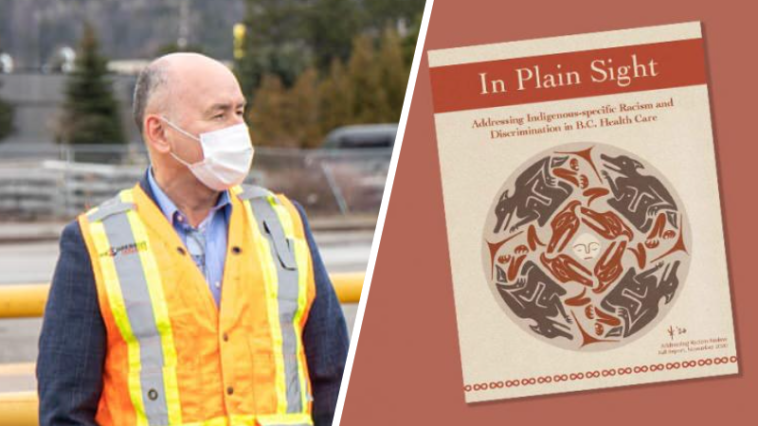Skeena MLA Ellis Ross doesn’t think that Indigenous patients and healthcare workers face discrimination across the B.C. healthcare system, even though an independent review by Judge Mary Ellen Turpel-Lafond has found otherwise.
“I’m not naive to think that racism doesn’t exist, but I don’t think it exists in a system,” Ross, a BC Liberal and former chief councillor of the Haisla Nation Council, recently told the legislature.
“Most likely, it could be in individuals, but I haven’t seen it yet.”
During a recent speech on the topic in Victoria, Ross said the ongoing debate about healthcare racism is unfair towards healthcare workers.
“To call the whole health care system…Putting them under the category of being systematically racist. How can you, on one hand, praise our doctors and nurses and, on the other hand, accuse them of being racist? It’s just a blanket accusation. This is not fair. This is not right. The doctors and nurses all across B.C. can’t defend themselves,” he said.
Ross was referring to several Skeena incidents, including an ongoing review into why a young pregnant Haisla woman named Sarah Morrison was denied service at Kitimat General Hospital and then had a stillborn baby.
The statements by Ross are contrary to the conclusions of a major provincial report, “In Plain Sight“, by Judge Mary Ellen Turpel-Lafond, formerly the B.C. advocate for children’s rights. The report, which came out last year, concluded that “racism is an ugly and undeniable problem in B.C. health care.”
“Be careful with the accusations, no matter what it is, but be extra careful when you’re accusing an entire profession of being racist,” Ross said.
However, the report’s conclusion that Indigenous peoples get poorer healthcare treatment than other people in B.C. was based on survey feedback from more than 9,000 “patients, health workers, family, caregivers and concerned observers.”
“Indigenous health care workers believe that racism is a problem in their workplaces and organizations, and over half of Indigenous respondents to the [survey] have experienced workplace discrimination themselves,” the report said. “Although everyone knows about the problem, it is not treated the same as other problems.”
Many non-Indigenous healthcare workers also think racism is a serious issue in the healthcare system. “Over one-third of all non-Indigenous respondents to the [survey] reported that they had personally witnessed interpersonal racism or discrimination directed to Indigenous patients, and almost half of non-Indigenous respondents acknowledged its existence in their organizations,” the report explains.
The report praised healthcare workers for their ongoing efforts to battle the COVID pandemic and also the opioid crisis.
“Despite the immense challenges and pressures created by these health emergencies, thousands of health care workers – along with their leaders and organizations – found the time to participate in this Review,” Judge Turpel-Lafond concludes. “I thank them for that, and for their dedication to confronting the matters raised in this report.”




